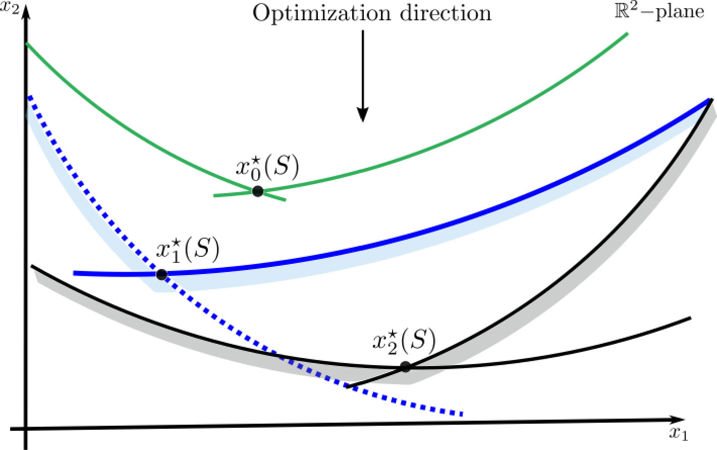10 Feb 2022
Dr Romao receives Doctoral Dissertation Prize
Licio Romao has been awarded the 2021 IET Control & Automation Doctoral Dissertation Prize

Postdoctoral researcher Dr Licio Romao, who completed his DPhil working in the Control Group at the Department of Engineering Science, has been awarded the Institution of Engineering and Technology’s (IET) Control and Automation Doctoral Dissertation Prize 2021 for his DPhil research in the theoretical foundations of optimisation algorithms.
“It is truly an honour to receive this prestigious award. I hope it will inspire Latin American and other underrepresented children and students to pursue their dreams to become scientists.“
The prize is awarded annually to recognise research excellence in a student who works in the field of Control and Automation. This year, the IET had more submissions than ever before. On winning the prize, Dr Romao says, “Being someone that since a young age was always curious for solving complex mathematical problems, I see this achievement as a culmination of hard work and dedication. I am extremely grateful and proud to be part of an outstanding group of researchers who have won the IET control and automation doctoral dissertation prize. “
Romao’s DPhil research was supervised by Prof Antonis Papachristodoulou and Prof Kostas Margellos and “focused on a class of algorithms, called optimisation algorithms, that is commonly used to increase the efficiency of mathematical models. These algorithms are at the core of the learning stage of several machine learning techniques that recently led to ground-breaking results in several fields, including image classification and prediction”, explains Romao.
Current applications of these algorithms have some key flaws, as Romao expands, “Optimisation algorithms in these machine learning applications run under a large amount of data; however, their performance deteriorates, and their implementation may not be possible in situations where the dataset exceeds storage capabilities or is available in a decentralised manner”
“It is also often the case that simplifications of the mathematical models lead to a considerable discrepancy with respect to the phenomenon under study, or even that a model may not be available at all”.
“[We] advanced our understanding on effective strategies to deal with uncertainty that can be used by power system operators to decrease maintenance costs, while keeping the whole system safe, even under a high percentage of renewable energy in the system”
“How do we then formulate and interpret the solution of an optimisation procedure which relies on these uncertain mathematical models?” Romao asks, “A commonly used approach is to employ data-driven techniques, which leverage the available information to make informed decisions”

This figure illustrates the application of one of the main results of Dr Romao’s thesis in a two-dimensional uncertain optimisation problem. The removal strategy consists in a cascade of optimisation problems. In this pictorial example, in the first stage the green constraints are removed, then the blue ones. Dr Romao and his supervisors have proved a theoretical result that provides safety guarantees on the probability of constraint violation associated with the solution at the intersection of the black constraints.
Romao’s work looks at ways to address the two challenges of working with large volumes of data and simplified models of real-world scenarios, “First, we propose a new optimisation scheme that enables parallel computation and decentralised communication to solve an optimisation problem. These features are suitable to large-scale problems, as they allow sharing computational and storage burden and respecting privacy of the individual processing units by means of a local communication network”
There are important applications to Romao’s research, “Secondly, we deal with the data-driven approach to uncertain optimisation, which is a central aspect in several machine learning and engineering problems. For instance, the inclusion of renewable energies (wind, solar, etc) into our power system network is rapidly increasing to mitigate the impact of climate change.”
“Despite its unquestionable necessity, the increase of variable and unpredictable power injected to the network makes the whole system more prone to blackouts. One of the results of my thesis advances our understanding about an effective strategy to deal with uncertainty within an optimisation context and can be use by the power system operators to decrease the maintenance cost, while keeping the whole system safe, even under a high percentage of renewable energy in the system.”
“[My] supervisors, not only gave me freedom to explore and find my own research path but also supported me in the most challenging times”
Romao concludes, “[Winning the award] is a unique opportunity to me, especially since I had to overcome a lot of structural barriers (e.g., lack of funding and resources) that go beyond the academic merit. Coming from a small town in the northeast of Brazil called Itambe, in the state of Pernambuco, and receiving such a recognition is an honour that bears great responsibility, with which I hope to inspire kids with similar backgrounds as mine. ”
“I would like to state that I was lucky enough to have two great supervisors, who not only gave me freedom to explore and find my own research path but also supported me in the most challenging times. Their guidance was essential, so thank you Prof. Kostas Margellos and Prof. Antonis Papachristodoulou.”
Prof Margellos adds, “It was obvious from the early stages of his DPhil that Licio had a natural inclination to mathematical research; his strong foundations together with his research enthusiasm were reflected in his thesis’ findings. This award was richly deserved!”




